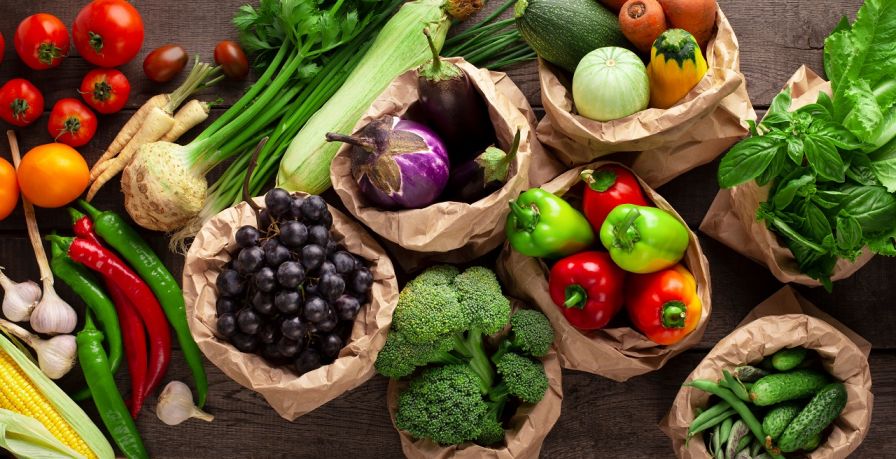OR
Express Checkout
We guarantee to have the lowest price! Find the same bin for a cheaper price and we will beat it!

Do you stock up on fruit and veg at the supermarket, all full of good intentions, only to notice that after barely a week, your lettuce has gone limp, and your carrots have gone shrivelled and dry? What can you do to stop this happening and save your food from the bin?
Reducing fruit and vegetable waste is an important step towards a greener environment and better waste management. In mainland England, many households use black wheelie bins to dispose of their fruit and vegetable waste.
Although this is a common practice, it's crucial to minimise the volume of waste entering these bins to reduce the burden on landfills and promote sustainability. To achieve this, households can implement a few strategies, such as meal planning to avoid overbuying perishables, storing fruits and vegetables correctly to prolong their freshness, and repurposing produce scraps for compost or other creative uses.
By adopting these practices, residents can not only decrease the amount of organic waste in their black wheelie bins but also contribute to a healthier planet and a more efficient waste management system.
The cost of food waste
Millions of tonnes of food are wasted every year, and fruit and vegetables are a major source of waste. Food waste is a waste of the water and energy used to grow and produce the food, and it also produces methane when it decomposes, which is a huge contributor to global warming. These are the costs to the environment, but let’s not forget the effects on your wallet too. Estimates say that the average family throws away more than £400 worth of food each year. Surely that money would be better off in your pocket.
Keeping fruit and veg fresher for longer
Fruit and vegetables are commonly wasted because they often need to be stored in a particular way to keep them fresh.
> Salad leaves: Salad leaves respire and are best stored in the fridge. Storing them at low temperatures will prevent bacteria from forming on them. They also need a bit of humidity, but beware getting them too wet, as they can turn slimy. This is why you shouldn’t wash veg before you store them in the fridge.
> Keep vegetables in plastic bags to keep them from drying out and shrivelling. Don’t store the vegetables in an airtight container as this can make them ‘suffocate,’ and they’re more likely to go off.
> Cucumbers and beans need to be kept in the fridge, but not at very low temperatures, and they should be eaten as soon as possible. Keeping the cucumber in the plastic it comes wrapped in will keep it fresher for longer as it reduces moisture loss.
> Carrots can easily dry out, so trim off any green bits and store them in a container in the fridge.
> Fruits like strawberries, citrus and grapes should be kept in the fridge in a container with vents. Ever noticed why strawberry punnets have holes in the bottom? This is so the produce can breathe.
> Mushrooms should be kept in a plastic bag to stop them drying out.

What shouldn’t go in the fridge?
Pears, apples and kiwifruit should be kept out of the fridge as the cold can affect their ripening process and eventually affect their taste and texture. This also applies to bananas, mangoes and pineapples.
As far as other produce goes, potatoes, onions and garlic should be kept out of the fridge because the humidity can make them sprout. They should be kept in a cool, dry place like a cupboard, to keep them dry.
Plastic can help vegetables stay fresh, so if they come in plastic packaging, it’s generally okay to store them in this packaging at home. You’ll find that produce lasts longer when it’s kept in its packaging. Despite what you might think about plastic, research found that cucumbers wrapped in plastic last for 22 days compared to just a few days for cucumbers that aren’t wrapped.
Extra tips for fresher food and reducing plastic
> If you want to reduce plastic and have fresher food, you can try growing your own produce-especially herbs, leafy greens, and cucumbers that create a lot of waste because they are hard to store.
> You can also buy locally-grown food that’s in season. This equals fresher food that’s better for the environment and your health.
> If you’re trying to reduce plastic, you can store produce in brown paper bags, wrap them in cloth, or use stainless steel containers.